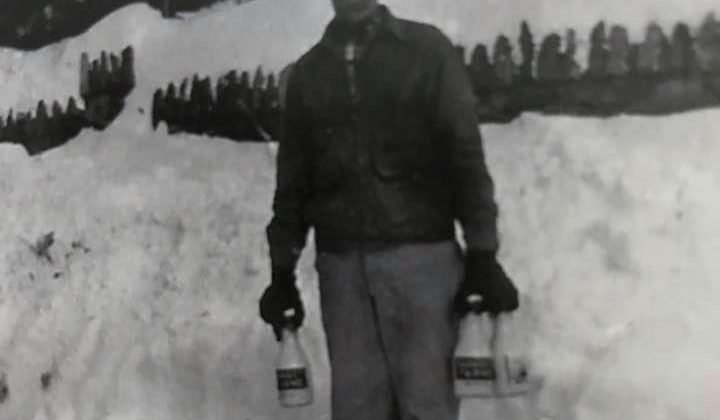

My grandfather (pictured above) was a New Jersey milkman. So needless to say, Emily Belz’s piece at World magazine caught my eye. Here is a taste:
ON A RECENT SUMMER NIGHT in Hawthorne, a New Jersey town not far from New York City, Roy Hook worked alone at a loading dock. It was midnight, and Hook was hauling milk from a warehouse cold room to his truck to deliver to local homes. The 69-year-old milkman makes night deliveries to milk boxes his customers leave on their porches or beside their garages.
Hook is one of the last old-school milkmen in New Jersey. During last year’s pandemic lockdowns, he was one of the forgotten night shift workers who never stopped showing up, along with essential workers like police, medical professionals, and those serving the homeless.
Hook and some local farms saw a surge of demand for home milk delivery at the start of the pandemic. One milk delivery company in Pennsylvania, Cow Belle, reported that its home delivery business tripled to 360 homes a week. But as people returned to grocery stores, that demand ebbed, and Hook plans to retire next year. Milkmen (and milkwomen) have been going out of style since grocery stores began selling milk and people began buying refrigerators. But Hook’s customers like the old routine of deliveries from a local milkman who knows their orders, and they leave him notes in their milk boxes.
The home delivery route isn’t profitable nowadays. Hook and his brother Tom Hook—also a milkman and a partner on the route—have sustained their business on small commercial deliveries to schools, bagel stores, diners, and delis. As the economy has revived, Hook has gotten more milk delivery requests from commercial entities, like a nearby hotel.
Read the rest here.